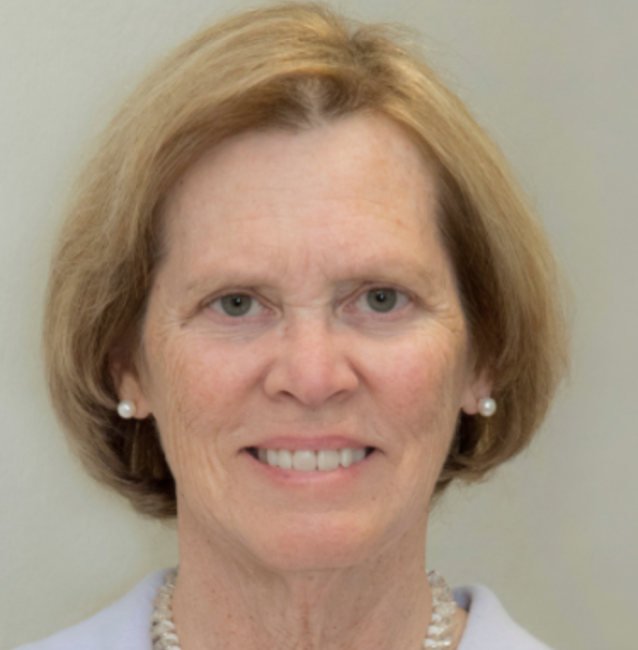You have /5 articles left.
Sign up for a free account or log in.

Donna Hughes
University of Rhode Island
The University of Rhode Island is distancing itself from an endowed professor of gender and women’s studies who recently wrote about what she calls the “trans-sex fantasy.”
“The ‘gender identity’ movement is canceling people’s free speech and academic freedom for anyone who doesn’t fall in line, speaks out in opposition, or even calls for the right to debate,” the professor, Donna Hughes, wrote in a recent essay for 4W, a “fourth-wave” feminist website. “People are losing social media accounts or being fired for ‘misgendering’ someone or not ‘affirming’ a person’s’ claimed ‘gender identity.’”
In the meantime, Hughes said, “an increasing number of teens are signing-up for harmful treatments with no one, not even parents, being allowed to intervene.”
Responding to criticism of the essay, URI this week released a statement saying that it “does not support statements and publications by Professor Donna Hughes that espouse anti-transgender perspectives and recognize that such discourse can cause pain and discomfort for many transgender individuals. The university is committed to transgender rights and the need to eliminate all forms of discrimination and violence aimed at transgender individuals and the LGBTQIA+ community.”
At the same time, URI said, faculty members have the “same rights, obligations, and responsibilities as other American citizens. The university honors and respects the right to freedom of speech under the First Amendment for all citizens, including our faculty, without censorship or retaliation.”
URI said it also recognizes that its professors “have the general right to ‘academic freedom’ in their teaching and scholarship.” These rights are “not boundless, however,” the university said, “and should be exercised responsibly with due regard for the faculty member’s other obligations, including their obligations to the university’s students and the university community.”
Hughes said via email that the university’s statement is an “egregious affront to my free speech and academic freedom rights.” It’s “clearly established that a public employee has the right to speak as a private citizen on matters of public concern, which is precisely what I have done.”
Samantha Harris, Hughes’s lawyer, said that “like faculty around the country who express views that are out of step with the prevailing orthodoxy on campus, Professor Hughes has become the target of an online pressure campaign.” This involves an effort to get students to file complaints about her with the university and “take her down,” Harris explained, quoting one Twitter user.
URI said its administration, College of Arts and Sciences and department of gender and women’s studies are now "working to support our students and the community as we move through -- and learn from -- this situation.”
Hughes, the Eleanor M. and Oscar M. Carlson Endowed Chair of Gender and Women’s Studies at URI, has long written about controversial issues such as prostitution and taken at times controversial stances on them: whereas some gender studies experts believe that sex work is legitimate labor that women can freely choose, Hughes believes there’s a fine line between sex work and sex trafficking and that legalizing prostitution helps only pimps and johns, not sex workers.
Though divisive, most of Hughes’s arguments have fallen within the accepted realms of academic debate. This foray into gender identity discourse is more fraught, as many trans activists, allies and gender studies scholars say that questioning to what degree trans women are women is transphobic and bigoted. Other scholars have pushed back on that notion as censorship.
The most contentious academic arguments tend to center on trans women, not trans men, as women and trans people -- but not cisgender men -- have been historically marginalized. Critics such as Hughes, who are sometimes derided as trans-exclusionary radical feminists, or TERFs, worry that the biological category of woman is being erased, while trans women worry about further marginalization via exclusion from female spaces.
A ‘Dystopia’
Hughes wrote in her essay, for instance, that the “biological category of sex, particularly women’s sex, is being smashed. Women and girls are expected to give up their places of privacy such as restrooms, locker rooms, and even prison cells. When biological males identify as trans-women, they can compete in women’s and girls’ sports.”
In this “dystopia,” Hughes continued, “basic biological words like breast and vagina are replaced by misogynistic, trans-sex/trans-gender language so that a female has a ‘front hole’ instead of a vagina; females ‘chest feed’ instead of breastfeed. All references to women disappear into terms such: ‘people who menstruate,’ ‘people with uteruses,’ ‘a pregnant person,’ or ‘a birthing parent.’”
These “redefinitions are hatred targeted at women’s bodies and their rights,” Hughes said, noting that there’s no comparable push to rename men’s body parts.
Perhaps most controversially, Hughes wrote that young people are now “guided into hormonal and surgical horrors that de-sex them.” Through these interventions, “girls’ female bodies are permanently scarred and destroyed.” On Twitter, Hughes has retweeted content about women regretting getting "top" surgery to affirm a male gender identity from which they'd since detransitioned.
Scholars in Britain have arguably been even more engaged in these topics in recent years, with the government there considering a gender self-recognition plan. Some feminist academics in Britain, including Kathleen Stock, opposed the plan on the grounds that it would inflict unintended harm. One of these commonly cited unintended harms is that abandoning sex-exclusive spaces would expose women to male violence. Trans activists point out that trans people face disproportionate levels of violence.
The British government recently abandoned the self-recognition plan. President Biden, meanwhile, has already signed an executive order on preventing and combating discrimination on the basis of gender identity or sexual orientation. Many applauded this action. But Hughes wrote that it means the “trans-sex fantasy has imagined -- and is enacting -- a world in which how a man feels is more real than his actual reality.”
This makes the political left not so different from conspiracy and disinformation junkies on the far right, she said.
On Twitter, Hughes has also shared criticism of the proposed federal Equality Act, which would redefine sex to include gender identity and sexual orientation.
Via email, Hughes said it’s “just sad that we have reached a point in society where difficult issues cannot be freely and openly discussed without resort to personal attacks and calls for censorship.”
The marketplace of ideas, she added, “has broken down and increasingly, university faculty are terrified to speak out on a wide range of important issues for fear that -- as seems to be happening here -- they will draw criticism from their students and their institution will throw them under the bus.”
Hughes is a founding member of the Academic Freedom Alliance, which launched recently to defend professors’ academic freedom from attacks from the political left and right. Her case, she said, demonstrators “precisely why the AFA was founded and is so necessary.”
Harris, Hughes’s lawyer, said that URI is “obviously within its rights to criticize” Hughes’s views, but that the university’s statement seems to imply that the article may not be protected by the First Amendment “because she somehow failed to show appropriate restraint in the expression of her opinion. This simply is not the case.”
The article is indeed protected speech, “quite apart from questions of academic freedom,” because Hughes was expressing her views as a citizen on a matter of public concern, Harris said. Hughes’s article didn’t note her affiliation to URI, and the fact that she may be “well-versed in the subject by virtue of her work does not transform this into speech made within the context of her employment.”





